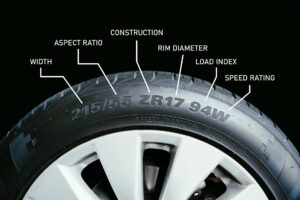We’re here to talk about the most expensive car repairs that your pride and joy could face – but don’t panic just yet. Sure, big repair bills are no one’s idea of fun, but we’re also going to provide some tips on how to limit the damage. With a little bit of knowledge and proactive maintenance, you can ensure your beloved vehicle stays on the road without breaking the bank. So start those engines, and let’s jump right into our topic.
The most expensive car repairs include engine and transmission overhauls, suspension system replacement, and other major repairs. These can cost thousands of dollars, so it’s essential to take preventative measures to keep your vehicle in good condition. Regular maintenance and timely repairs can save you from these costly bills.
Engine Rebuilds Are Some of the Most Expensive Car Repairs
While the evolution of cars did bring us things like the BMW color-changing vehicles, the engine is still the heart of a car and plays a critical role in its overall performance. It provides power to the wheels, enabling the car to move. As you can imagine, without an engine, a four-wheeler is just a collection of stationary parts. When an engine fails, it can require a complete overhaul or replacement, which can cost thousands of dollars. The cost, of course, will depend on the type of engine and the extent of the damage.
What Are the Causes of Engine Rebuilds?
There are several causes that can lead to the need for an engine rebuild, including:
- Lack of maintenance,
- Overheating,
- Oil issues,
- Wear and tear,
- Manufacturer defects.
What Is the Average Cost of Engine Rebuilds?
Having the actual price range can help you get the bigger picture, at least it did for me. So, here is a table showing the average cost of engine rebuilds for some common car models in the US:
| Car Model | Average Cost of Engine Rebuild |
| Honda Civic | $1,500 – $3,000 |
| Ford F-150 | $2,500 – $4,000 |
| Toyota Camry | $2,000 – $3,500 |
| Chevrolet Silverado | $2,500 – $4,000 |
| Jeep Wrangler | $3,000 – $5,000 |
How Can You Prevent Possible Repairs?
Preventing engine repairs requires regular maintenance, such as changing the oil and oil filter, replacing air filters, and keeping an eye on the engine’s coolant levels. It’s also important to address any issues promptly, such as warning lights or strange noises, to prevent further damage. Don’t forget that avoiding aggressive driving and overloading the vehicle can reduce wear and tear on the engine.
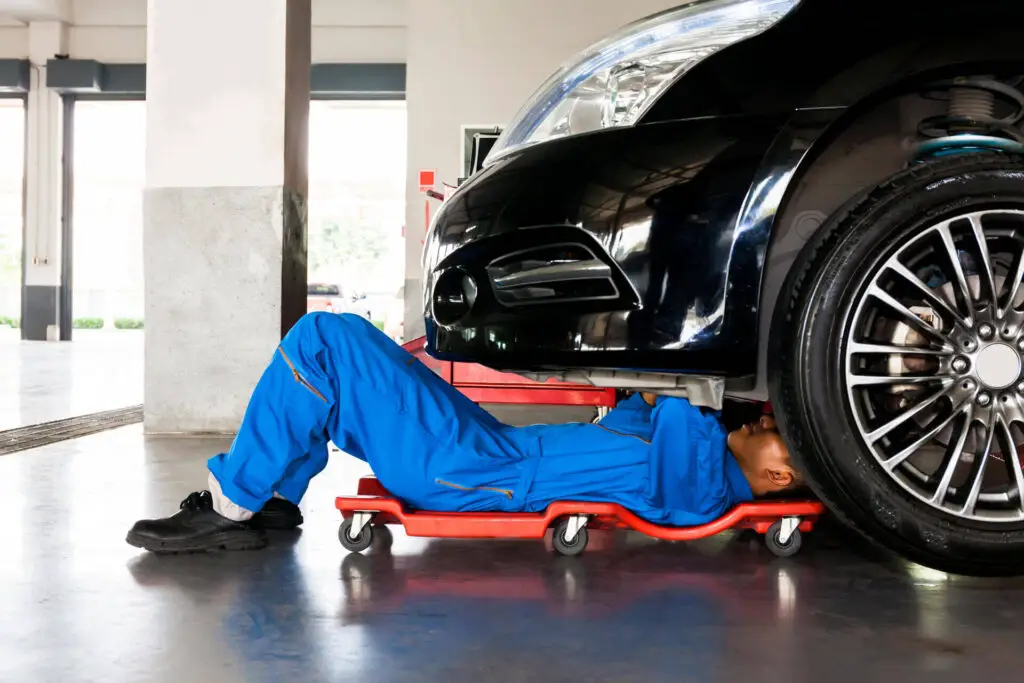
Transmission Replacement Can Be One of the Most Expensive Repairs on a Car
The transmission is a complex system of the torque converter, drive shaft, U-joints, constant-velocity joints, and other components. This system controls the power from the engine and transfers it to the wheels. When a transmission fails, it can require a complete replacement, which can cost thousands of dollars.
What Are the Causes of Transmission Replacement
There are several causes that can lead to the need for a transmission replacement. Besides lacking regular maintenance and wear and tear, other symptoms include:
- Overheating of the transmission can cause damage to its components, including the gears, seals, and clutches.
- Manufacturer defects, in rare cases, can cause the failure of the transmission system and require replacement.
- Accidents (in most cases, the more severe ones) can be the reason why transmission requires replacement.
- Incorrect use of the transmission, such as using it to slow the vehicle down instead of the brakes, can cause damage to the transmission.
What Is the Average Cost of Transmission Replacement
Let’s check the table below of the average cost of replacing the transmission for the most common vehicle models in the US:
| Car Model | Average Cost of Transmission Replacement |
| Honda Civic | $2,500 – $3,500 |
| Ford F-150 | $3,000 – $4,500 |
| Toyota Camry | $3,000 – $4,500 |
| Chevrolet Silverado | $3,500 – $4,500 |
| Jeep Wrangler | $3,500 – $5,000 |
How Can You Prevent Repairs?
Changing the transmission fluid and filter is considered a part of regular maintenance. If you implement this step, it can help prevent transmission problems and prolong the life of the entire system. It’s also important to address any issues promptly, such as slipping gears or strange noises, to prevent further damage and reduce the risk of a costly transmission replacement.
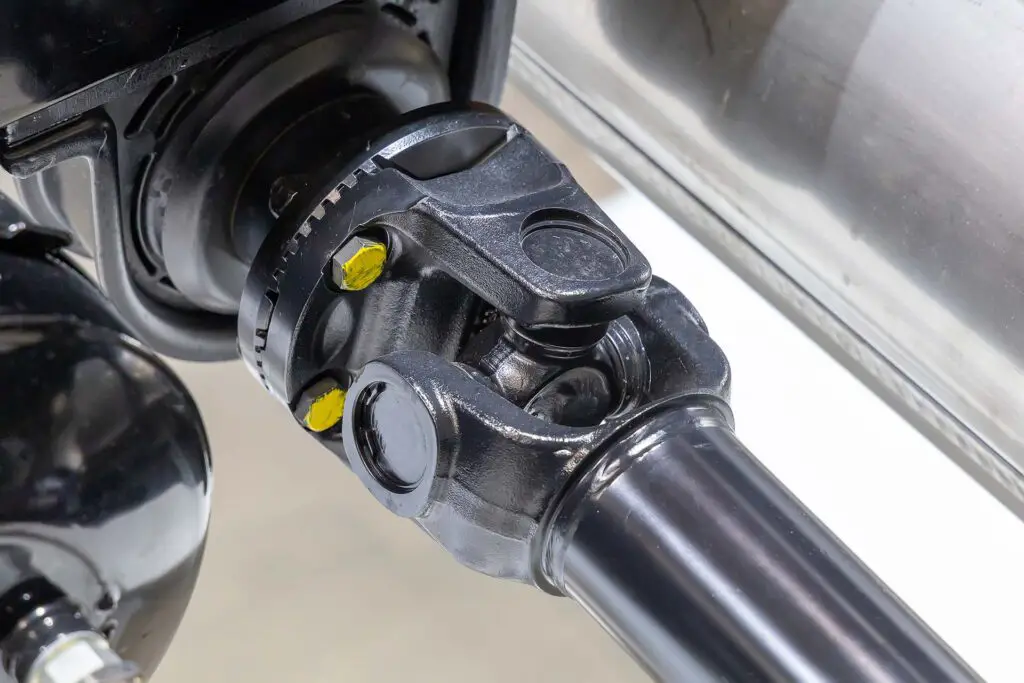
Suspension and Steering System Repair Can Cost a Lot of Money
The suspension system supports the weight of the vehicle and provides a smooth ride, while the steering system controls the direction of the wheels. When these systems fail, they can cause handling problems and make the vehicle unsafe to drive.
Repairing the suspension and steering systems can involve replacing components such as shocks, struts, ball joints, tie rods, and steering gears.
What Are the Causes of Suspension and Steering System Repair
You already see the pattern, right? Lacking maintenance, wear and tear, and accidents definitely can cause a lot of problems to your four-wheeler. Other causes include:
- Rough driving conditions – Driving on rough roads, potholes, or off-road terrain can cause damage to the suspension and steering systems.
- Incorrect installation – Improper installation of suspension and steering components can cause damage and the need for repair or replacement.
What Are the Average Costs of Suspension and Steering System Repair
The cost can vary depending on the make and model of the vehicle and the extent of the damage. You already know what’s coming – a table with the average cost of repairing a faulty steering system for common car models in the US:
| Car Model | Average Cost of Suspension and Steering System Repair |
| Honda Civic | $500 – $1,500 |
| Ford F-150 | $1,000 – $2,000 |
| Toyota Camry | $500 – $1,500 |
| Chevrolet Silverado | $1,000 – $2,000 |
| Jeep Wrangler | $1,000 – $2,500 |
How Can You Prevent Repairs?
Preventing suspension and steering system repairs requires regular maintenance, such as checking the alignment, inspecting components for wear and damage, and addressing any issues promptly. It’s also important to avoid rough driving conditions, such as potholes and off-road terrain, which can cause damage to the suspension and steering systems.

Hybrid/Electric Battery Replacement Expenses Can Be Pretty Steep
The battery is a crucial component in hybrid and electric vehicles, as it provides power to the electric motor. Over time, the battery can degrade, reducing its efficiency and ability to hold a charge. If the battery fails (ensure you check battery cables first), it may need to be replaced (and disposed of adequately), which can cost thousands of dollars.
What Are the Causes of Hybrid/Electric Battery Replacement
Besides accidents and manufacturing defects, there are several causes that can lead to the need for hybrid/electric battery replacement, including:
- Battery age – Over time, the battery can degrade, reducing its efficiency and ability to hold a charge.
- Exposure to extreme temperatures – Exposure to extreme temperatures, such as extreme heat or cold, can cause damage to the battery and reduce its lifespan.
- Lack of use – If the vehicle is not used regularly, the battery can degrade and require replacement.
- Improper use – Overcharging or deep discharging can cause damage and reduce its lifespan.
What Is the Average Cost of Hybrid/Electric Battery Replacement
Let’s check right away the table of how much money will be needed to take care of battery replacement for hybrid models Americans drive the most.
| Car Model | Average Cost of Battery Replacement |
| Toyota Prius | $2,500 – $3,500 |
| Chevrolet Volt | $3,000 – $5,500 |
| Nissan Leaf | $3,000 – $6,500 |
| Tesla Model S | $5,000 – $7,000 |
| BMW i3 | $6,000 – $9,000 |
How Can You Prevent Repairs?
Regular maintenance, such as keeping the battery charged and not exposing it to extreme temperatures, can help prolong its life. It’s also important to purchase a high-quality battery and have it installed by a qualified technician to ensure proper functioning.
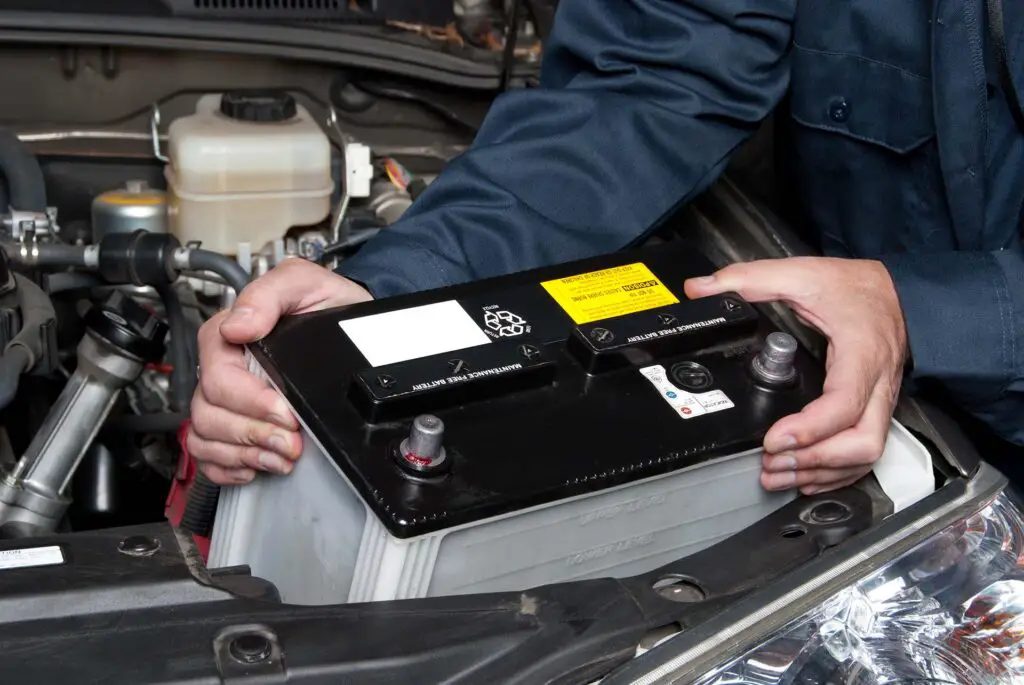
Body Damage Repair Can Knock a Lot of Money Out of Your Wallet
The body of a car protects the passengers and components from damage and provides the vehicle with its aesthetic appearance. Body damage can include dents, scratches, and more severe damage from accidents. Repairing body damage can involve replacing or repairing body panels, re-painting, and realigning components.
What Are the Causes of Body Damage
As you probably can assume, the main reason for the body damage of your four-wheeler surely is an accident. Even minor accidents can cause dents, scratches, and other damage to the body of a vehicle. But count in some of the following causes too:
- Hail can cause significant damage to the body of a car, including dents and broken glass.
- Vandalism and intentional damage, such as keying or spray-painting a car, can cause body damage.
- Extreme weather conditions, such as hurricanes, floods, and tornadoes, can cause severe damage to the body of a car.
- Parking lot incidents, such as door dings or backing into a pole, can cause minor body damage.
What Is the Average Cost of Body Damage Repair
If you’re into DIY projects, then all this can cost you a bit less, but count that you’ll still have to spend some money, depending on the severity of the damage, of course. This being said, let’s check the table below with the average cost of body damage repair:
| Car Model | Average Cost of Body Damage Repair |
| Honda Civic | $500 – $1,500 |
| Toyota Camry | $500 – $1,500 |
| Ford F-150 | $1,500 – $3,000 |
| Chevrolet Silverado | $1,500 – $3,000 |
| Jeep Wrangler | $1,500 – $3,000 |
What Are Some Other Expensive Car Repairs to Consider
In addition to the repairs mentioned earlier, there are several other expensive car repairs to consider. These can include replacing the air conditioning system, repairing or replacing the powertrain, and fixing the electrical system.
Fuel System Repairs
The fuel system is responsible for delivering fuel to the engine, and any problems with this system can cause a range of issues, including reduced fuel efficiency and engine damage. Common fuel system repairs include replacing the fuel pump, fuel filter, fuel injectors, and fuel lines.
Electrical System Repairs
These can include fixing or replacing the alternator, starter, battery, or wiring, which can be time-consuming and costly. Problems with the electrical system can cause a range of issues, including failure to start, warning lights, and engine misfires. Common electrical system repairs include replacing the alternator, starter, battery, and wiring.
Air Conditioning Repairs
Air conditioning system repair or replacement can be costly, particularly if it involves replacing the compressor or evaporator.
Tips to Avoid Expensive Car Repairs
You can help reduce the risk of expensive car repairs and keep your vehicle running smoothly for years to come. Here’s how to do it.
Regular Maintenance and Inspections
Regular maintenance and inspections can help prevent major problems from developing by identifying and addressing issues early on. It’s important to follow the manufacturer’s recommended maintenance schedule, including oil changes, filter replacements, and tire rotations.
Proper Driving Habits
Practicing safe driving habits, such as avoiding harsh braking and acceleration and not overloading the vehicle, can help reduce wear and tear on the components and prolong the life of the vehicle.
Choosing a Reliable Mechanic
It’s important to have a reliable mechanic or dealership to perform repairs and maintenance to ensure proper functioning and avoid additional costly repairs. Look for a mechanic with experience and good reviews, and ask for referrals from friends and family.
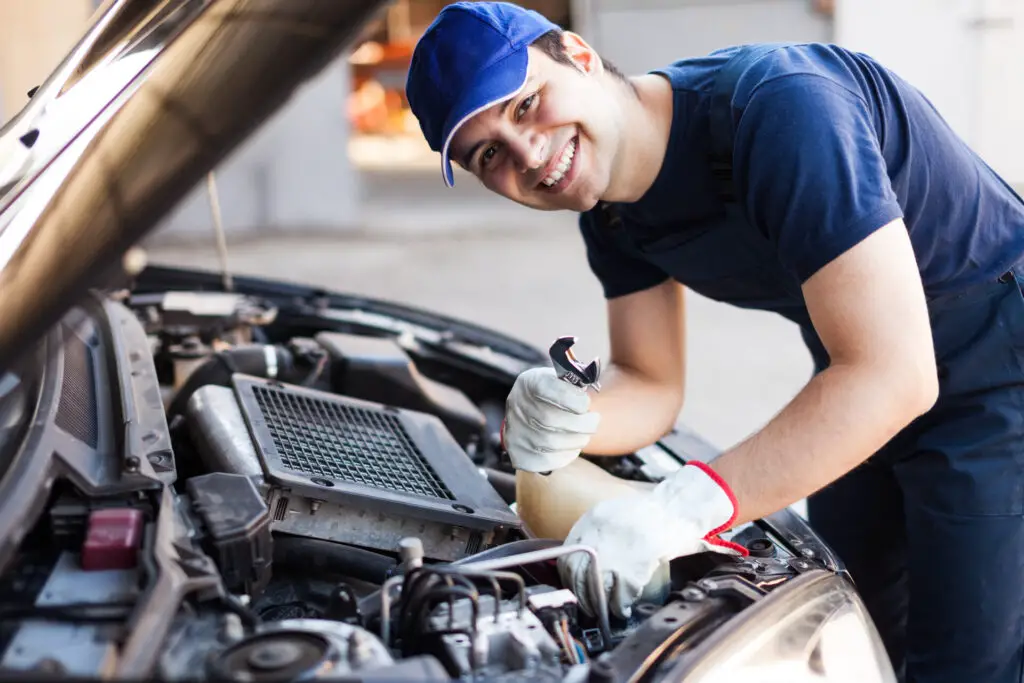
There Is Always a Way to Avoid Costly Repairs
Feel good knowing that you have ways to protect your car and finances before disaster strikes. With these tips, you’ll have less stress and more cash when it comes to car care. There’s nothing better than knowing your four-wheeler is in top-notch condition and that you’ve done everything possible to prevent early or unnecessary repairs, right? Happy driving!



